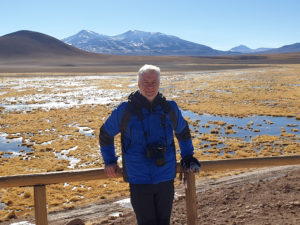Internet is a wonderful world, it is a space that we all frequent every day and that brings us information, knowledge, news and fun curiosities.
But it is also a world where anyone can have their say (a very advanced digital democracy) which therefore shows us its double-edged sword. What we read is not always true, it is not always correct and we often find ourselves trying to understand what or who deceived us and why. With new video and audio processing technologies, it is now no longer enough to beware of bad writers (voluntarily or not) but also from images, recordings and videos of people who say things they have never said, who take actions they never have done, all thanks to the visual effects that, even if difficult to achieve, are increasingly affordable and also at lower costs than in the past.
All of this just to say that writing a blog is a responsibility. Believe me. Every word is weighed, every statement analyzed and criticized by that that wonderful people of readers that you are.
So I don't want to take it lightly, and God forbid, otherwise I wouldn't be here. But the subject "astronomy", a very ancient and wonderful science, needs rigorous and precise affirmations, it needs punctuality and correctness.
As the scientific method requires.

In fact, until the time of Galileo Galilei, science was based on not very experimental observations, on non-objective, reliable and verifiable demonstrations. From Galileo onwards, however, the true scientific method (or experimental method) has slowly taken over, leading to ways of reaching knowledge typical for science, which must always proceed towards objective, reliable, verifiable and shareable reality.
It is a collection of empirical data, guided by hypotheses and theories to be tested. Subsequently a rigorous, logical-rational and, where possible, mathematical analysis of these data. To this analysis, as stated for the first time by Galilei in 1600, we must associate "sensible experiences" with "necessary demonstrations", that is, experimentation with mathematics.
The scientific method is therefore fundamental in all sciences and consequently also in astronomy: unlike other sciences, however, astronomy has the additional difficulty of "experimentally proving" the data collected, since most of them come from deep space and has no immediate objective confirmation on Earth. In other words, we cannot verify in the laboratory whether a stellar plasma actually behaves this way, or if a galaxy weighing billions of suns undergoes the gravity of another body in the same way as a small sphere on an inclined plane behaves.
However, this has certainly not stopped the research in this field, which has blossomed further especially in recent years, thanks to multi-message astronomy, based on the observation and coordinated interpretation of different types of "messenger" signals, coming from different sensitive instruments at different wavelengths, gravitational waves, neutrinos and cosmic rays which, being generated by different astrophysical processes, can reveal different information about their sources.
So scientists first of all. To which I believe in, not a priori and absolutely, but because they have studied, experimented and sifted through many possibilities before making any statement. And to quote the great Galileo again, "in matters of science, the authority of a thousand people is not as good as the humble reasoning of a single individual".
But a blog also talks about "personal" things, about experiences in the field, about travel, about hopes and fears, perhaps not only in the astronomical field.
I hope you can read my stories calmly and find something useful, nice and exciting in each of them.
